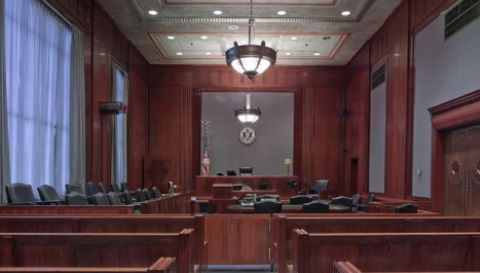
- “The jury found that Ugo Colombo and his company breached a contract, but only the company was held financially liable. A White & Case lawyer previously represented Colombo but cross-examined him despite a warning from the presiding judge that it could provide grounds for an appeal. The jury verdict amounted to $10 million, which nets to $1.9 million after application of escrow proceeds.”
- “‘Lawyers who litigate against and cross-examine former clients should exercise restraint to avoid maligning their former clients in the press,’ Sean Burstyn, who is among the attorneys that represented Colombo, said on Monday. ‘The legal profession suffers enough from misperceptions about the loyalties of its members.'”
- “As a result, the defense is likely to file an appeal over an ‘appearance of impropriety’ that Burstyn raised leading up to Robinson’s cross-examination of the White & Case partner’s former client, Colombo, court transcripts suggest.”
- “Moving forward, the basis for a potential appeal lies in the cross-examination that Robinson conducted of his former client, Colombo. Miami-Dade Circuit Judge William Thomas previously suggested that Robinson could have been aware of confidential information due to his prior representation of Colombo.”
- “The state court transcripts show that Thomas specifically advised Robinson against conducting the cross-examination, warning, ‘You’re proceeding at your own peril… In the 17 years on the bench, I haven’t had the occasion where the lawyer who previously represented the client was going to cross-examine the client, even though there was no motion for disqualification,’ Thomas said, according to the transcript.”
“Gilstrap discloses potential Microsoft, Walmart conflicts in closed patent cases” —
- “An East Texas federal court on Friday disclosed that a judge with one of the busiest patent dockets in the country had potential financial conflicts in dozens of closed patent cases involving Microsoft, Walmart, Target and others.”
- “In letters on Friday to the parties in those cases, David O’Toole, the clerk of the court, said that it was brought to U.S. District Judge Rodney Gilstrap’s attention that ‘a trust in which his spouse has an interest’ held stock in the companies, which also include IBM, JP Morgan, Home Depot and many others, while he presided over cases brought between 2011 and 2018.”
- “The letters come in the wake of a Wall Street Journal report last month highlighting certain federal judges’ alleged financial conflicts in disputes they oversaw. The report said Gilstrap had conflicts in 138 cases, more than any other of the 130 federal judges identified in the story.”
- “Some of the letters also said Gilstrap himself owned stock in McDonald’s and Alcoa during cases in his Marshall, Texas, court, and that even though U.S. Magistrate Judge Roy Payne dismissed them before he took any action, the stock ownership would have required Gilstrap’s recusal.”
- “The court asked the parties to respond to the possibility that Gilstrap should have disqualified himself from hearing the cases under the code of conduct for federal judges.”
- “Lawmakers introduced legislation Monday in both houses of the U.S. Congress that would require judges to report stock trades over $1,000 within 45 days and post their financial disclosures online. The federal judiciary has said it would review its conflict-screening process, and the chair of the federal judiciary’s ethics committee said at a Tuesday hearing that it was developing a new electronic system for processing judges’ financial disclosures more quickly.”
“How To Address The Shadow IT Problem” —
- “Let me start with a story I heard recently. A law firm had in place a written policy that set forth a list of approved services, software and tech devices that could be used by staff and attorneys. During a network security assessment conducted by an outside vendor, the question ‘Does anyone at the firm use Dropbox’ was asked. The answer was ‘Absolutely not. Dropbox is not an approved service.’ This is when one of the security consultants informed the firm that over 80 email addresses of firm attorneys and staff were tied to individual Dropbox accounts. Such much for firm policies.”
- “The concern over the 80+ individuals who were using Dropbox was that they would fail to take necessary steps to use it in a competent and secure way and that indeed was the case. Missteps would have included things like not enabling two factor authentication, failing to create a unique strong password for account access, and not responsibly using file permission settings to control file access, just for starters.”
- “When staff and attorneys at any firm make unilateral decisions to not abide by a firm’s policies and procedures and just use any service, software, or device they like, unintended consequences can follow. Such decisions might be ‘justified’ by a belief that the rules don’t apply to them, the rules make no sense or are too difficult to follow, no one can tell them what they can or can’t do with their own devices, or even that doing so made their work easier or more efficient in their minds. Unfortunately, if the unintended consequence turns out to be a network security breach, which is the greatest concern, their reasoning matters not.”
- “Truth be told, I believe completely eradicating the problem for any firm is going to be an unattainable goal. That said, the problem can be effectively managed. Before you can responsibly address the problem, however, it’s important to understand that shadow IT is often brought into play because there were tech needs that were unmet, associated risks that were not understood, and/or an apathy about existing policies.”
